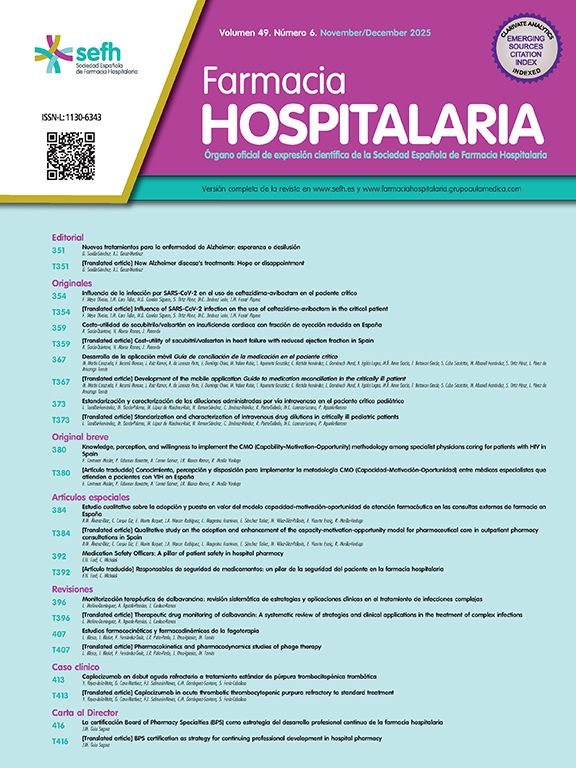“Why evaluating during residency? What is the use, if it has no curricular value?” “If all tutors assign the maximum score, I am not going to harm my students” … “I don't know how to score, there are no criteria” … All of us involved in the training of specialists have certainly asked ourselves these questions, and probably we have all collaborated to build this speech to a higher or lower extent, without reflecting on the importance of being part of a specialization system1 based on training programs, with the aim to provide future professionals with the knowledge, skills and attitudes specific to their specialty.
The institutions involved in the training of healthcare specialists are required legally1, ethically and socially, to guarantee the professional competence necessary to achieve the quality of healthcare services. The social commitment of professionals involves answering to the demand of a highly technical society, with major demographic, epidemiological, social, legal and value changes, which also demands a fair distribution of limited resources. This requires a professional in permanent adaptation to new needs, with scientific knowledge, clinical abilities and information management, able to conduct a critical analysis of the options available, with research curiosity and social skills for team work.
All of us, as members of a service credited for education, and not only tutors, have a great responsibility regarding residents on training who will be the professionals of tomorrow. The evaluation of their training1 guarantees that they have reached the autonomy necessary for a successful professional development, and represents a challenge that involves commitment and transparency, as well as a new approach where there is an evaluation “FOR” learning and not “ON” learning. Training-Evaluation is inseparably united: evaluation becomes the driver of learning, and the tutor-resident feedback becomes the key for continuous improvement.
Evaluation is addressed through two complementary approaches: during action, through supervision-observation, and after the action, with the measurement of results by the resident, other professionals, or the activity records. It is essential that residents are aware of the subject of the evaluation and how to conduct it. And this “how” is precisely what the Group of Tutors from the SEFH offers in their recent publication: “Guide of Evaluation Tools for FIRs (Pharmacy Residents)”2.
An effort has been made to adapt tools, which are generic for all Health Sciences specialists, to the specific activities of Hospital Pharmacists, by designing ad hoc forms2. These tools: exam, direct observation, audit, portfolio and 360° evaluation, have in common that they provide feedback to residents about their learning, and facilitate a reflection on their progress; and therefore, they are instruments for training evaluation that help to introduce correcting measures in case any deficiencies are detected. On the other hand, there will always be some tools more adequate than others for each competence in terms of knowledge, skills or attitudes, always considering that each competence must be measured with more than one tool.
The publication of this guide has coincided with the Resolution from March, 21st, 20183, by the Dirección General de Ordenación Profesional, approving the basic guidelines that must be included in the supporting documents for the evaluation of specialists under training. This is a brilliant opportunity to review our evaluation methods, and to start applying the most adequate tools to each of the evaluation items listed in the new Report for Rotation Evaluation.
We hope that this publication will be useful to advance in the evaluation of our residents and future specialists, and to achieve the excellent training that they all deserve.






